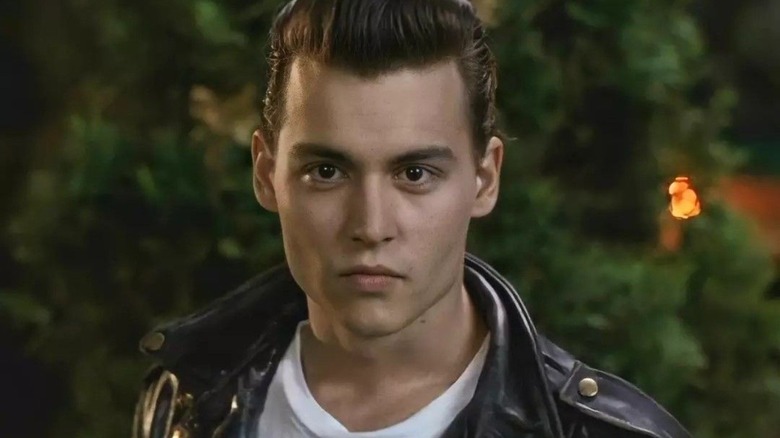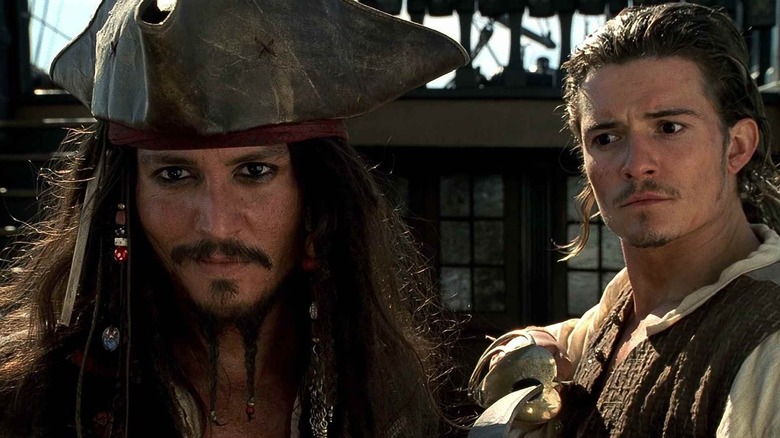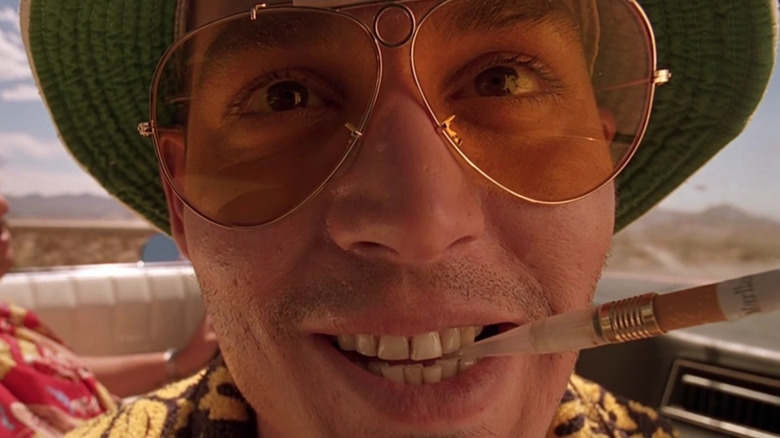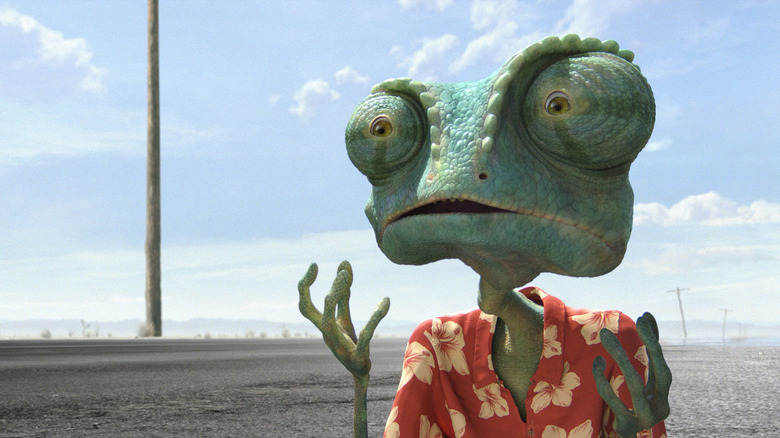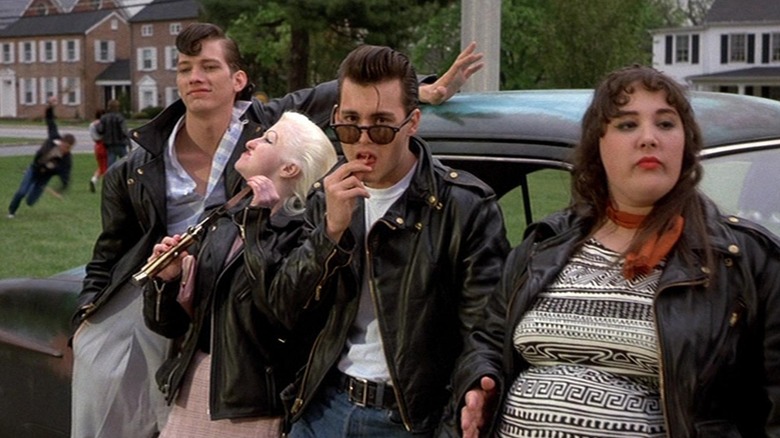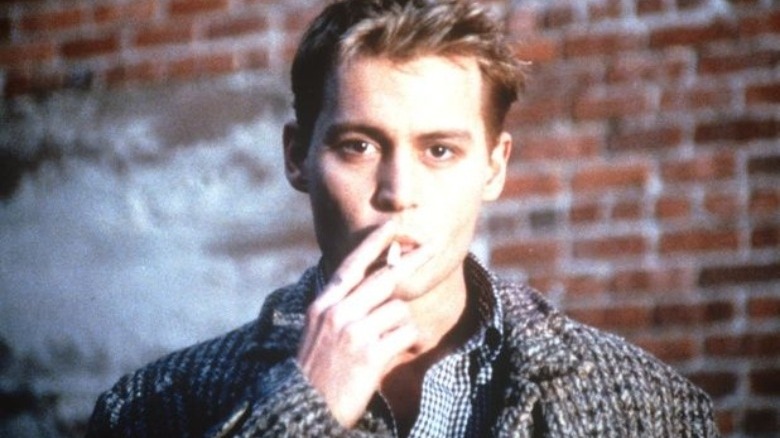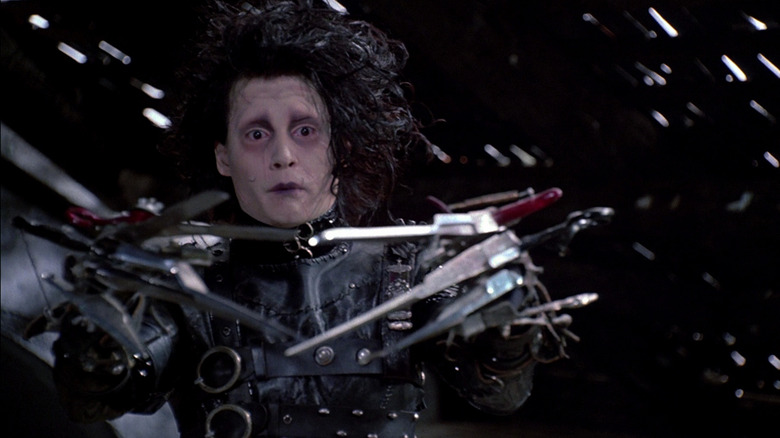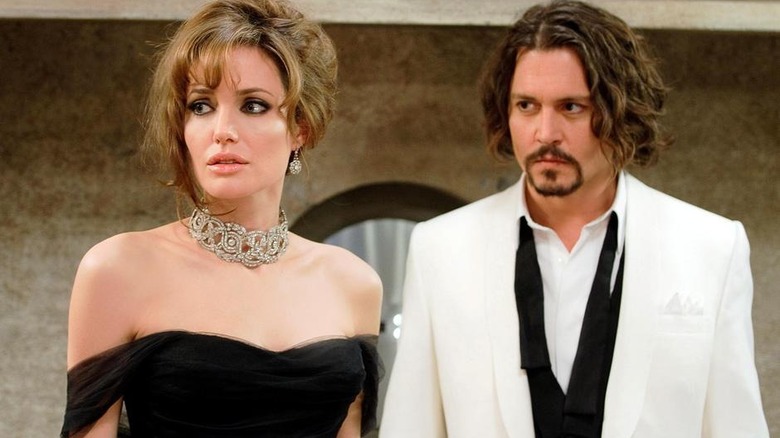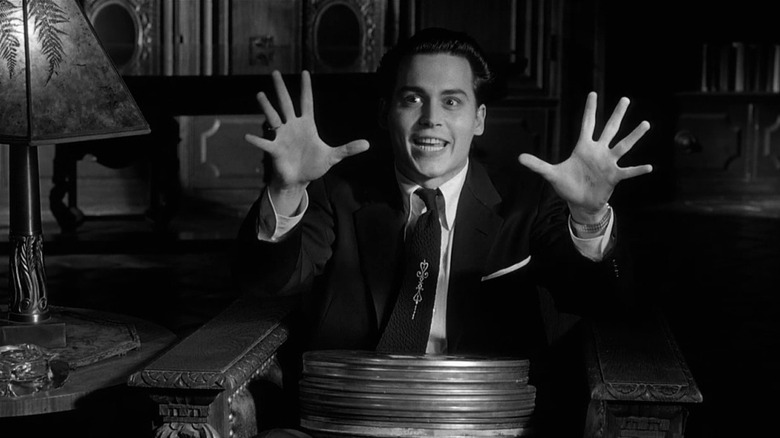Johnny Depp's Eight Best Roles, Ranked
For many, watching Johnny Depp movies has become a fraught experience. Once touted as a quirky character actor with matinée idol good looks, Depp became an alt-sweetheart of outsiders and Goths everywhere, frequently taking on "weirdo" roles. He worked with strange filmmakers like John Waters and, most often, Tim Burton, mostly to strip away the pressures of being a Hollywood pretty-boy, determined to prove himself as a performer who prefers the fringe.
He was also seen, for many years, as a Hollywood "bad boy," and he struggled with alcoholism and drug-fueled violent outbursts. In 1989, he was arrested in Vancouver for getting violent with a security guard. In 1994, he was arrested again for trashing a hotel room and had to pay over $9,000 in damages. He was arrested once more in 1999 for fighting with paparazzi. In 2012, Depp's security guards were sued by an Irvine medical professor for roughing her up and handcuffing her. (Depp settled the case out of court.) In 2018, Depp was sued yet again for getting angry and hitting someone on the "City of Lies" set.
Then there was the very public falling out he had with his wife, Amber Heard. Depp lost a court case against a British newspaper that called him a "wife beater," with the judge ruling the label was "substantially true." Depp later sued Heard for defamation in the U.S. and won. (He gave the money to charity.) Depp is still seen as an abuser by many, and many no longer want to watch his movies.
This author is old enough to have seen all the above play out in real time, but recalls when Depp was seen as a counterculture icon. So, while watching Depp's movies is hard in 2024, one might still find his many great, oddball performances frozen in amber.
Here are some of the best.
8. Captain Jack Sparrow
Depp, although often hailed as a great actor, wasn't recognized by the Academy until 2003, when his performance as Captain Jack Sparrow earned him his first Best Actor Oscar nomination. Captain Jack Sparrow was the central character of Gore Verbinski's "Pirates of the Caribbean: The Curse of the Black Pearl," a film based on a Disneyland attraction. Depp famously said that he modeled his drunken pirate mannerisms and voice after the Rolling Stone Keith Richards, an unusual choice that elevated Jack Sparrow into a pop icon of the 2000s. It was odd to see a strange performance in such a brazenly commercial film be recognized as unique and worthy of awards.
Depp's performance inspired innumerable Halloween costumes, and he would reprise the role for four additional films. Despite a career of playing over-the-top weirdos, Jack Sparrow has become the actor's most recognized performance.
7. Raoul Duke
Terry Gilliam's big-screen adaptation of Hunter S. Thompson's gonzo reportage, "Fear and Loathing in Las Vegas," is chaotic and nearly unwatchable. It's a film about Thompson's alter-ego, Raoul Duke (Depp), trekking to Vegas in an utterly wild drug-induced haze. Sin City has never looked so dizzyingly Hades-like, with its trashy 1970s glitz pouring all over the audience's faces like so much glittered vomit. Depp chose to always have a cigarette in his teeth, making a lot of his dialogue incomprehensible ... which somehow added to the messiness of the film.
One can admire Depp's devotion to the bedlam. He seems to have looked at old Bob Clampett cartoons and chose to out-zany them. As a result, Depp is hilarious in the role, lending a surreal slapstick edge to the filth and depravity. You won't see another film like "Fear and Loathing," and you may not want to. There is certain an integrity to that.
6. Rango
14 years after "Fear and Loathing," Depp would come out with a more inspired, animated riff on his Raoul Duke shtick with Verbinski's "Rango," a truly strange film about a lone chameleon lost in the deserts of Nevada. The chameleon has no identity, not knowing how to define himself when trapped in his cage as a pet. He loves acting, however. When he finds himself separated from his owner, the chameleon wanders into a nearby town of anthropomorphic animals and declared himself to be an Old West hero named Rango. Eventually, of course, he'll have to make good on his declared heroism.
"Rango" has the daring to be strange, dropping in references that no child could possibly understand (Depp also has a cameo as an animated Raoul Duke). The film, however, is just as rich in its own unique mythology as it is in its strangeness. Depp gives a — forgive me — chameleonic performance as Rango, showing that modern, celebrity-based voice acting is much more than just sounding like yourself. He gives his all.
5. Wade Cry-Baby Walker
Prior to 1990, Depp was unhappy with his career. He had become recognized in the horror community for his role in "A Nightmare on Elm Street" and shot to fame on the hit series "21 Jump Street" playing a teen cop. But both of those roles, however great, pigeonholed Depp as a pretty boy. He didn't like being admired for his jawline, feeling that his career going forward was to be nothing but bland leading men and handsome heartthrobs.
Leave it to John Waters to break the mold. Just as his stint on "Jump Street" was ending, Depp appeared as the 1950s J.D. rockabilly hero Wade "Cry-Baby" Walker in Waters' eponymous pastiche to his own 1950s upbringing. Cry-Baby was still presented as the most desirable juvenile at his Baltimore high school, but he was also seen as a weird rebel who loved being a criminal. He lead the local gang of "drapes" and played rockabilly music nightly.
In many ways, "Cry-Baby" was a subversion of the leading-man pigeonholing that Depp was experiencing. Waters broke him out of his shell and he became comfortable with weird roles in perpetuity.
4. Jack Kerouac
In 1999, Chuck Workman looked back over the previous 40 years of underground literature, tracing a line directly back to the Beat poets of the 1950s. In his excellent documentary film "The Source," he focused particularly on the three titans of the movement: Alan Ginsberg, William S. Burroughs, and Jack Kerouac, exploring how their dissatisfaction with mainstream 1950s culture gave rise to some of the most daring, frank, and interesting art America had yet produced.
To read samples of the three above authors' works, Workman hired three notable Hollywood stars to embody them on camera. John Turturro read for Ginsberg, Dennis Hopper read for Burroughs, and Depp read for Kerouac.
The three actors didn't really play the above authors so much as embody the spirit of their works. Recall that, in 1999, Depp was still seen as a counterculture hero, constantly in a state of breaking out and subverting Hollywood expectations. Having him read for Kerouac illustrated to young audiences of the 1990s a little bit of how the modern and the beatnik are still kind of chummy. He performed with casual dignity and playful poetry. Depp has never appeared so relaxed.
3. Edward Scissorhands
Released the same year as "Cry-Baby," "Edward Scissorhands" was a Goth fable of the highest order and continued a hot streak for Tim Burton, who had just come off of "Beetlejuice" and the mega-blockbuster "Batman." And if "Cry-Baby" was Depp's exit from the world of matinée idols, then "Edward Scissorhands" was his entrance into the realm of weirdos and non-humans. It would also begin a longtime collaboration between Depp and Burton that would extend into seven additional films.
Edward Scissorhands is a partially mechanical being who lives in a Gothic castle that is located, quite surreally, in the middle of a placid 1950s-style suburb. Edward was created by a twisted scientist (Vincent Price) who aimed to transform a piece of cutting equipment into a human. The old scientist died before his work was complete, however, and Edward was left with bladed hands. Dianne Wiest finds Edward and brings him into the suburbs. There, his hands are useful for chores, but destructive in most other cases.
Edward is awkward, funny, strange, and the ultimate outsider. What Goth kid didn't feel like Edward, the cutting machine in the middle of a Norman Rockwell painting? Depp plays a nonhuman android with utter sympathy, and we can feel the love in his mechanical heart.
2. Frank Tupelo/Alexander Pearce
When Florian Henckel von Donnersmarck's "The Tourist" hit theaters in 2010, it was greeted with contempt and scorn by audiences and critics alike. Rewatching the film, it's difficult to understand why. Written by von Donnersmarck, Christopher McQuarrie, and Julian Fellowes, "The Tourist" is everything mainstream audiences claim to want in their lightweight summer entertainments. It stars two of the hottest stars of the day (Depp and Angeline Jolie) and features a sexy, globe-trotting con-artist plot that sees our leads constantly occupying romantic locales and opulent buildings.
Depp plays against type as a nerdy nebbish who is minding his own business when he is unexpectedly recruited by a sexy fugitive (Jolie). He is swept up into her life on the lam, trying hard to adapt to being a sexy spy ... and finding he likes it. There are, of course, many additional twists to the Hitchcockian plot. As one can see above, Depp plays two roles as the nebbishy nerd and the sexy criminal he happens to resemble. Depp, although fond of weird roles, proves he does indeed still have leading man energy in "The Tourist." The film is criminally underrated.
1. Edward D. Wood. Jr.
Edward D. Wood, Jr. is often called, perhaps accurately, one of the worst directors to emerge from Hollywood. His movies "Bride of the Monster," "Jail Bait," and "Plan 9 from Outer Space" are some of the most notorious turkeys in cinema history, with the latter often called one of the worst movies of all time. Screenwriters Larry Karaszewski and Scott Alexander wanted to celebrate Ed Wood, and teamed up with Burton to make a prestige picture about him, although told as if Wood himself were directing. Burton shot his film in black and white and hired Depp to play Wood.
Here's the thing about Ed Wood: his tin ear for dialogue created something unique and indelible, almost dreamlike. While he didn't excel in technical skill, Wood's passion and tenacity always came through, allowing audiences to feel a great affection for the filmmaker. Depp captured that enthusiasm, marrying Wood's excitement about monster movies with his bright-eyed-and-bushy-tailed joy about cinema. "Ed Wood" also frankly presented the director's open affinity for cross-dressing with joy, celebrating Wood's gender-blurring bravery.
Depp presents Wood as long-suffering, but too positive to stop. He found a tribe of weirdos and freaks, and lived happily among them. "Ed Wood" is one of the best movies about filmmaking.
